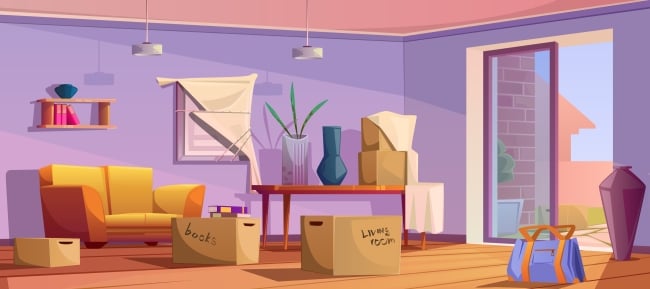You have /5 articles left.
Sign up for a free account or log in.

Not so many years ago, a senior colleague of mine captured the transformative power of teaching with a memorable metaphor. “We’re helping our students rearrange their intellectual furniture,” he would proclaim. And for a time, I and many other junior professors took his metaphor to heart and made it our own, parroting it back at moments when we felt anxious to explain our new profession to other people as well as to ourselves.
Looking back, I can see how his plainspoken yet problematic analogy spread so rapidly. Back then, the virtues of well-intentioned renovation permeated just about every corner of popular culture, from Flip or Flop to The Property Brothers. To “flip” something or someone deemed in need of sprucing up stood as an emblem of efficiency and vision. The expert flipper relied on consummate speed: getting in and getting out by making the changes most likely to produce a short-term profit and to please the would-be client. Coincidentally, the most ambitious flippers could expect to see a return on investment in the time it would take to wrap a semester.
Initially, it was the modesty of my former colleague’s pet metaphor that pleased me most; by extension, we weren’t throwing students’ shabby Lazyboys to the curb or shaming them for not having Ethan Allen. No, we were working with what they had, polishing it up, helping it shine. A throw rug here and a couch cover there—and voila! One could do far worse, I reasoned, though, as an educator, something about the beguiling turn of phrase gave me pause then, and it gives me greater pause now.
Granted, metaphors for teaching and learning come and go, waxing and waning as regularly as pedagogical trends, as each successive generation of professors endeavors to find a language equal to the mysteries inherent in learning. In the 1990s, my academic adviser exhorted us to “broaden our horizons.” For a generation at least, the maxim had worked its metaphorical magic on risk-adverse, tunnel-visioned undergraduates. And though its impact was beginning to wane, it retained its persuasive power among first-generation rural college students like me, for whom the appeal of a broad horizon made perfect sense.
Sometime in the early 2000s, the preferred metaphor for liberal teaching and learning shifted from the classically clichéd “broadening horizons” and “expanding minds” to “leveling the playing field,” a metaphor whose self-evidential goodness was difficult to argue with until it wasn’t. Critics pointed out the pernicious presumptions baked into the expression itself: By what societal mandate, they asked, did pedagogues deign to do such work? And more to the point, how could such meaningful leveling take place in a single semester devoted, for example, to pot-throwing or plant genetics?
By the time I began working with undergraduates, I couldn’t urge my advisees to “broaden their horizons” or to “open their minds” without feeling a twinge of embarrassment. Higher ed had moved on, and so had our need to find new metaphors. Increasingly, our analogies needed to speak not just to students seeking to understand the value of higher education, but also to the growing numbers of parents and pundits seeking reassurance in the most concrete terms.
In the coming weeks, as campus leaders seek the themes and memes by which they hope to challenge and inspire, I’m intent on finding a new metaphor, one capable of crystalizing for diverse constituencies what we do and how we do it. I reject the presumption of rearranging my students’ intellectual furniture—I see greater agency for them, and something more meaningful for myself, than the window-dressing offered by the educator-cum-interior decorator. And I’m equally hesitant before the hubris of those who claim the omniscience of leveling a playing field whose subtle stadium contours I cannot claim to understand myself, in a game at which I’ve never been a winner.
As the new academic year commences, I’m eager to see from which metaphoric fields higher ed’s emerging leaders will pluck their choicest metaphors to describe the profound challenges ahead. Will they choose resistance or revolution as rallying cries, words that apply the allegory of war to higher education? Maybe they take us deep inside the Matrix of a digital age, where teachers and learners become disrupters engaged in acts of digital transformation or even gamification. Or perhaps they will linger in the lush metaphoric fields of corporate America, where the ephemeral blooms of buzzwords such as radical hospitality and change management proliferate like poppies.
One thing is certain: the metaphors we choose cannot help but define us.








